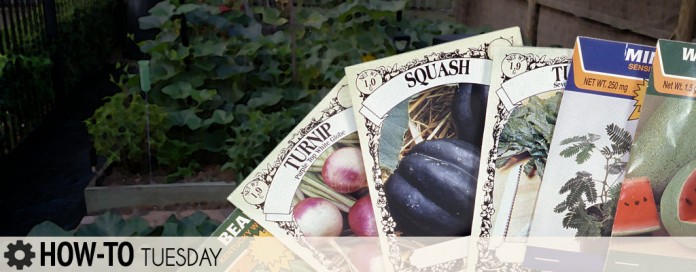Summer is quickly coming to a close, that means winter isn’t far away. With Ohio’s vegetable planting season long passed, what can you do with those leftover seeds? What’s the best way to keep those seeds viable over winter? How long do vegetable seeds last, anyway?
We asked ourselves those questions and found a blog that answers them, A Way to Garden.com.
The blog’s author, Margaret Roach, long-time gardener and former editor for Newsday and Martha Stewart Living, admits there’s no true science behind the longevity of seeds:
“Most seed will last a couple to several years—but there are disclaimers to even that general a statement. As living things, seeds are perishable, particularly if not kept cool and dry…”
According to Roach, treated and pelletized seeds have a different shelf life than seeds in their natural form. Another variable that can effect seed longevity is the health of the plant the seed was harvested from.
Seed life
To lengthen the life of your vegetable seeds, we recommend tightly sealing the seeds in a plastic bag, or plastic storage ware, and placing them in a refrigerator. Make sure to keep the seeds dry. Humidity is terrible for seeds.
A Way to Garden also offers a great chart outlining various seeds and their possible viability. The chart is one of the best resources on the site.
Finally, if you’re not sure if your seed can grow or not, try a germination test. But, no matter what, make sure you have backup seeds just in case.
To see the chart and for more useful tips visit A Way to Garden.











Seed storage is a tricky business, especially once you want to keep a lot of seed safe through a winter or two. Moisture is your friend in the growing season, and it is just as much your enemy when you are storing seed. Whether you use a bag or a jar, it is crucial the seeds are kept cool and dark until you’re ready for them to see the warm sunshine of spring!
Thanks for the tips, Lyndsay!
Do you keep any seeds?